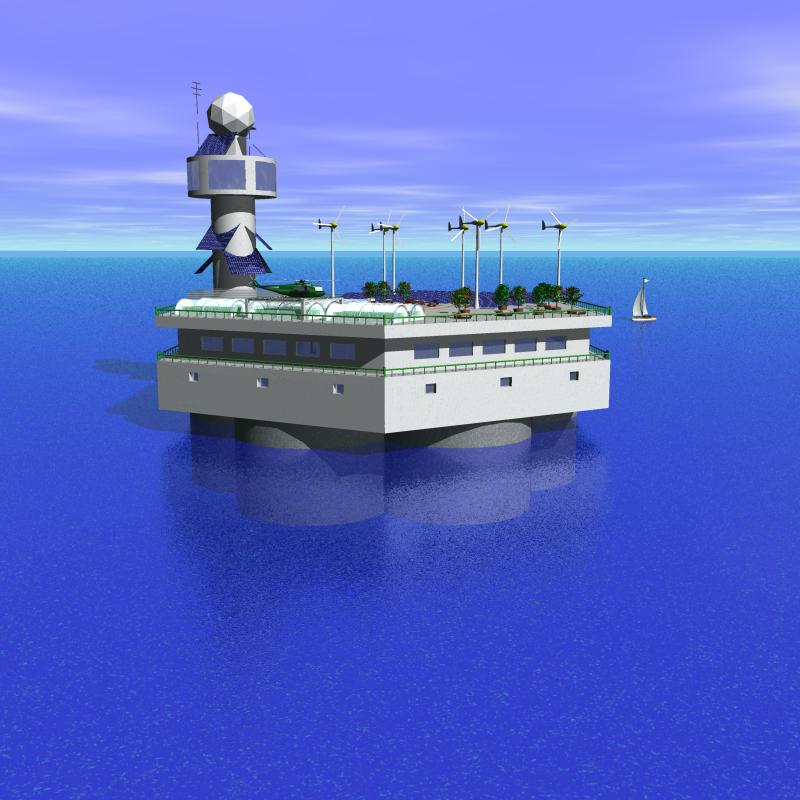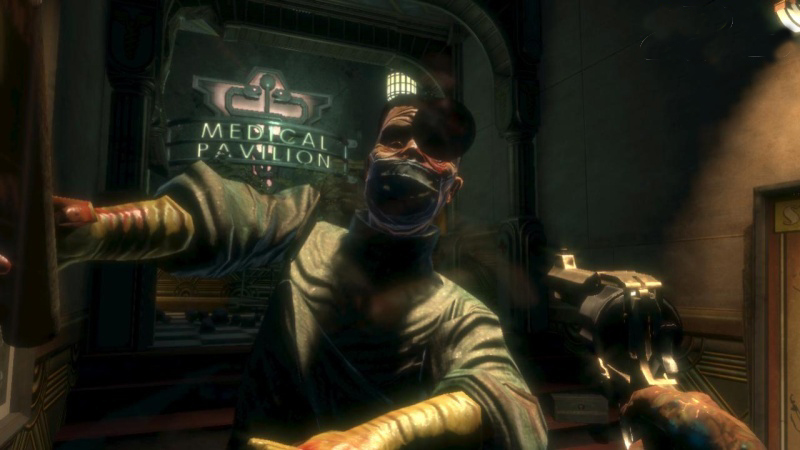
I am still laughing at this, as it not only proves the point about the commodification/recuperation of critical impulses, in my previous "Running Man" post, but does so, again with no irony, by striving to realise the world of "Bioshock", previously posted here.
Given that "Bioshock" was an Ayn Rand inspired dystopia, it is only fitting that a relative of Milton Friedman has his bloody fingerprints all over this. The last time I remember reading about this latest link in the Chicago School dynasty, he was extolling the virtues of a "back to the future philosophy", to rationalise his involvement in assorted medieval recreation societies (high tech feudalism, how appropriate). How fatuous do you have to be to criticise democracy because it is not always "innovating", especially when it is obvious that the end results of your own preferences are actually regressive?:
True to his libertarian leanings, Friedman looks at the situation in market terms: the institute's modular spar platforms, he argues, would allow for the creation of far cheaper new countries out on the high-seas, driving innovation.
"Government is an industry with a really high barrier to entry," he said. "You basically need to win an election or a revolution to try a new one. That's a ridiculous barrier to entry. And it's got enormous customer lock-in. People complain about their cellphone plans that are like two years, but think of the effort that it takes to change your citizenship."
Friedman estimates that it would cost a few hundred million dollars to build a seastead for a few thousand people. With costs that low, Friedman can see constellations of cities springing up, giving people a variety of governmental choices. If misguided policies arose, citizens could simply motor to a new nation.
What is also scary is involvement of a Google developer, and the founder of PayPal. This suggests the Californian cult of the self is getting too carried away again by generalising the application of ICT metaphors taken from neoliberal economics.
I have no problem with ballardian.com possibly developing other angles on this story, in keeping with its earlier feature on "micronations". I would agree it is easy to imagine such rarefied environments becoming "zones of exception", as in "Super Cannes", where the bored, spoilt inhabitants end up killing each other for sport. But I haven't been diligent enough lately to check if this discussion is already taking place, either there, on in other forums such as in the journal "Island Studies".
For a less commodified vision of the "temporary autonomous zone", albeit saddled with its own dubious ethical associations rooted in common libertarian soil (such as pederasty), one could take a (bewildered) look at the prospective ideal of "pirate utopias":
Finally, here is the link to the piece in Wired on the Seasteading Institute:





